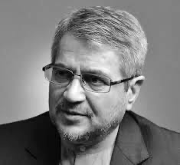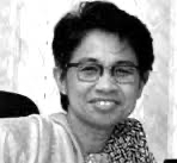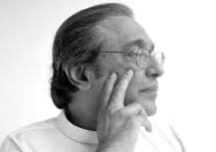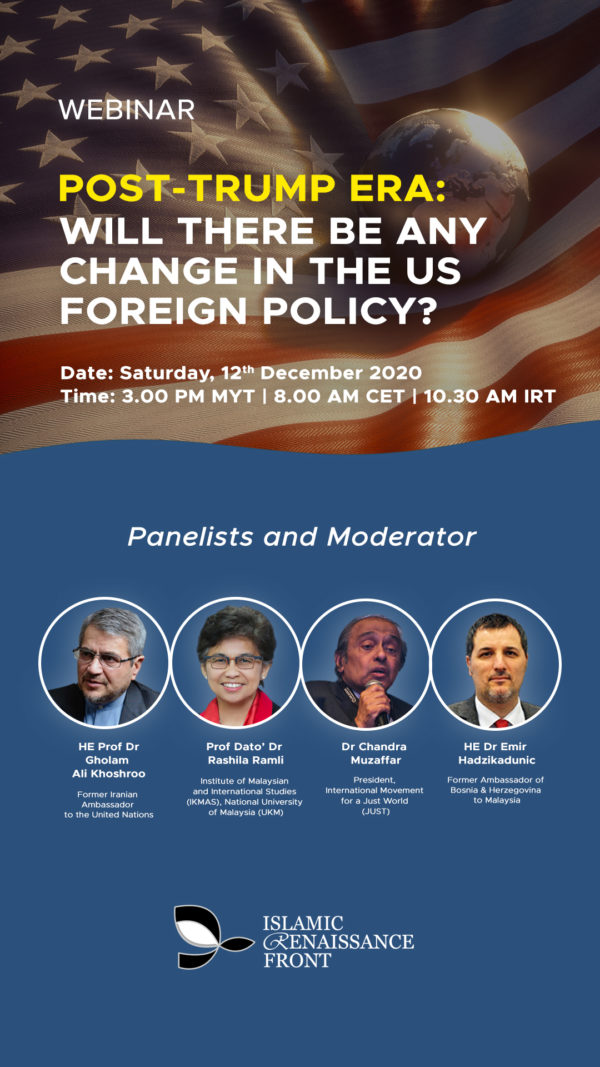Date: Saturday, 12th December 2020
Time: 3 PM MYT || 8 AM CET || 1030 AM IRT
Panelists:
- HE Prof Dr Gholam Ali Khosroo, Former Iranian Ambassador to the United Nations
- Prof Dato’ Dr Rashila Ramli, Institute of Malaysian and International Studies (IKMAS), National University of Malaysia (UKM)
- Dr Chandra Muzaffar, President, International Movement for a Just World (JUST)
Moderator:
- Dr Emir Hadzikadunic, Islamic Renaissance Front
Organized by: Islamic Renaissance Front (IRF)
The Zoom link will be sent one day before the webinar, on Friday 11th December 2020.
You can send your questions in advance to [email protected]
It is said that the world according to Donald Trump has been one of “America First” nationalism, discarding international agreements that he believed gave America a raw deal. It was basically a transactional, disruptive, and unilateralist agenda. It was also perhaps personal and erratic, shaped by his own feelings and relationships with leaders, and driven perhaps by his Tweeter feeds.
But then Democratic Joe Biden has won the 2020 US Presidential election and will soon be inaugurated as the 46th president on January 20, 2021. How will the new occupant of the White House change American foreign policy in the post-Trump era? Is it naive to assume that a Biden presidency marks a return to ‘the way things were’? Indeed, the sceptics are not to be dismissed lightly in their view that no big change is to be expected. With every new US president in power vying to be more pro-Israel than the previous one, what does a Biden administration portend for Palestine’s liberation from the brutal Zionists’ occupation? In fact, Mr Biden is well-known as a staunch supporter and a long time defender of Israel, and the word ‘occupation’ was never in his party’s foreign policy platform.
Nonetheless, speculations run high on the hope for a ‘better world’, especially with the challenges of COVID-19. Will he reverse Trump’s abandonment of the Iran nuclear deal and end the economic sanction that has incapacitated the people of Iran? In terms of America’s relations with rival superpower China, will Biden maintain its current confrontational stance despite its far-reaching global impact? Or, if he will be promoting free trade again, will it be on the same terms as in the Obama era? What is going to be the new administration’s stance on Beijing’s adventurism in the South China Sea? As far as India is concerned, will the new presidency continue to support Modi’s domestic policy agenda that blatantly marginalises India’s Muslim minority? Indeed, one cannot help wonder if the US foreign policy under Biden will be more sympathetic to Muslims and the Muslim world.
Mr Biden also says that he wants to revive American leadership. But the world has changed in the past four years and the recent polls showed that America’s reputation has plummeted even amongst staunch allies — those Mr Biden would aspire to lead.
About the Speakers:
 HE Prof Dr Gholam Ali Khosroo is the former Iranian Ambassador to the United Nations. Prior to his appointment, Mr Khoshroo was his country’s Ambassador to Switzerland. From 2005 to 2014, he was Assistant Secretary General of the Asian Parliamentary Assembly, after having served as Deputy Foreign Minister for Legal and International Affairs from 2002 to 2005. Dr Khoshroo was Ambassador to Australia from 1999 to 2002, before which he served as Deputy Foreign Minister for Research and Training from 1997 to 1999. From 1989 to 1995, Dr Khoshroo was Deputy Permanent Representative to the United Nations. He served two terms, from 1981 to 1989 and 1995 to 1997, as Dean of the School for International Relations, affiliated with Iran’s Foreign Ministry. In recent years, he has extensively worked on current developments of contemporary political Islam and its implication for western societies. He has also contributed to various forums and seminars on how to promote dialogue and moderation among nations and how to contain extremism and sectarian violence. As a sociologist he studied at Tehran University and New School for Social Research, New York. He has published several articles and a book on political and cultural affairs.
HE Prof Dr Gholam Ali Khosroo is the former Iranian Ambassador to the United Nations. Prior to his appointment, Mr Khoshroo was his country’s Ambassador to Switzerland. From 2005 to 2014, he was Assistant Secretary General of the Asian Parliamentary Assembly, after having served as Deputy Foreign Minister for Legal and International Affairs from 2002 to 2005. Dr Khoshroo was Ambassador to Australia from 1999 to 2002, before which he served as Deputy Foreign Minister for Research and Training from 1997 to 1999. From 1989 to 1995, Dr Khoshroo was Deputy Permanent Representative to the United Nations. He served two terms, from 1981 to 1989 and 1995 to 1997, as Dean of the School for International Relations, affiliated with Iran’s Foreign Ministry. In recent years, he has extensively worked on current developments of contemporary political Islam and its implication for western societies. He has also contributed to various forums and seminars on how to promote dialogue and moderation among nations and how to contain extremism and sectarian violence. As a sociologist he studied at Tehran University and New School for Social Research, New York. He has published several articles and a book on political and cultural affairs.
 Professor Dato’ Dr Rashila Ramli has a PhD in Political Science from Northern Arizona University. She is currently Principal Fellow, Professor of Political Science and former Director at the Institute of Malaysian and International Studies (IKMAS), Universiti Kebangsaan Malaysia (UKM). Her areas of specialisation are Political Development, Gender and Politics and Human Security. Her current research is on Global ASEAN; Promoting Social Inclusion through SDGs and Public Policies in Malaysia and Africa; and Governance of the South China Sea. She is also researching on Localising SDGs in 10 parliamentary areas across Malaysia. Her professional commitment includes serving as President of the Malaysian Social Science Association (PSSM) and member of the Council of Security Cooperation in Asia Pacific (CSCAP). She is also the Assistant Secretary General of the National Council for Women’s Organizations (NCWO) and Co-Chair of the UN-SDG Academic Network.
Professor Dato’ Dr Rashila Ramli has a PhD in Political Science from Northern Arizona University. She is currently Principal Fellow, Professor of Political Science and former Director at the Institute of Malaysian and International Studies (IKMAS), Universiti Kebangsaan Malaysia (UKM). Her areas of specialisation are Political Development, Gender and Politics and Human Security. Her current research is on Global ASEAN; Promoting Social Inclusion through SDGs and Public Policies in Malaysia and Africa; and Governance of the South China Sea. She is also researching on Localising SDGs in 10 parliamentary areas across Malaysia. Her professional commitment includes serving as President of the Malaysian Social Science Association (PSSM) and member of the Council of Security Cooperation in Asia Pacific (CSCAP). She is also the Assistant Secretary General of the National Council for Women’s Organizations (NCWO) and Co-Chair of the UN-SDG Academic Network.

Dr Chandra Muzaffar has a PhD in Social Sciences from the National University of Singapore. He is currently the President of the International Movement for a Just World (JUST), a Malaysia-based international NGO that critiques global injustice and seeks to develop an alternative vision of a just and compassionate civilisation guided by universal spiritual and moral values. Dr Muzaffar has published extensively on civilizational dialogue, international politics, religion, human rights and Malaysian society. Among his latest publications are A World in Crisis: Is There a Cure? (2014) and Reflections on Malaysian Unity and Other Challenges (2017). In l977, he founded ALIRAN, a multi-ethnic social reform group, which he led for 14 years. Apart from his role in JUST, Dr Muzaffar sits on the board of a number of international NGOs concerned with social justice and civilizational dialogue. Dr Muzaffar was Professor and Director of the Centre for Civilisational Dialogue, University of Malaya (1997-1999) and Professor of Global Studies at Universiti Sains Malaysia (2007-2012). Dr Muzaffar is the recipient of a number of international awards related to his scholarship and social activism.
Program:
300-310PM: Introduction by the Moderator, Dr Emir Hadzikadunic, Senior Research Fellow, Islamic Renaissance Front
310-330PM: Presentation by HE Prof Dr Gholam Ali Khosroo, Former Iranian Ambassador to the United Nations
330-350PM: Presentation by Prof Dato’ Dr Rashilla Ramli, IKMAS, National University of Malaysia (UKM)
350-410PM: Presentation by Dr Chandra Muzaffar, President, International Movement for A Just World (JUST)
410-450PM: Discussion
450-500PM: Concluding remarks by the Moderator, Dr Emir Hadzikadunic


